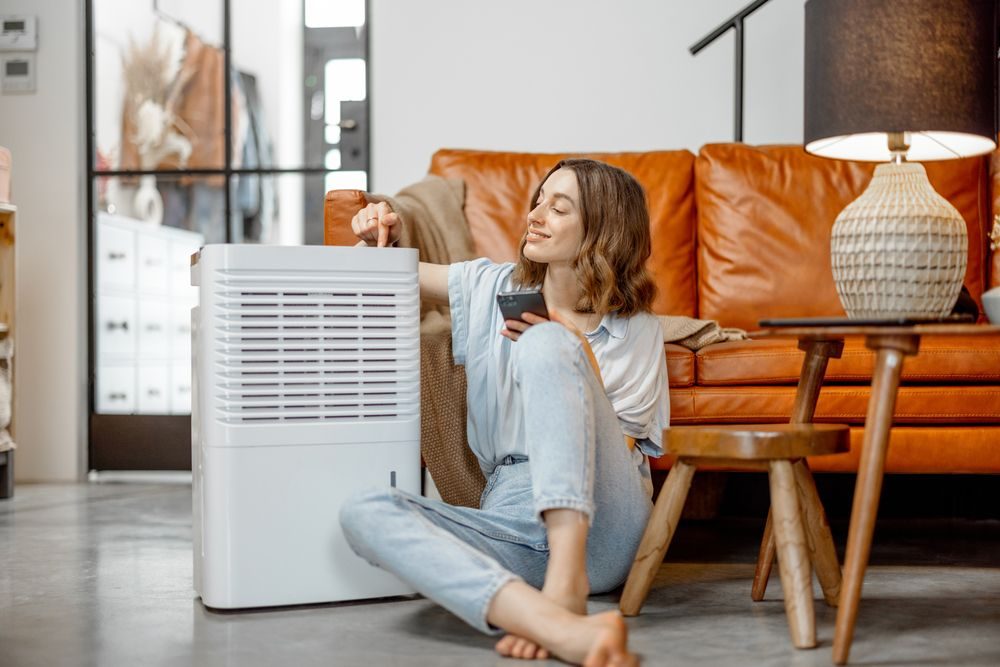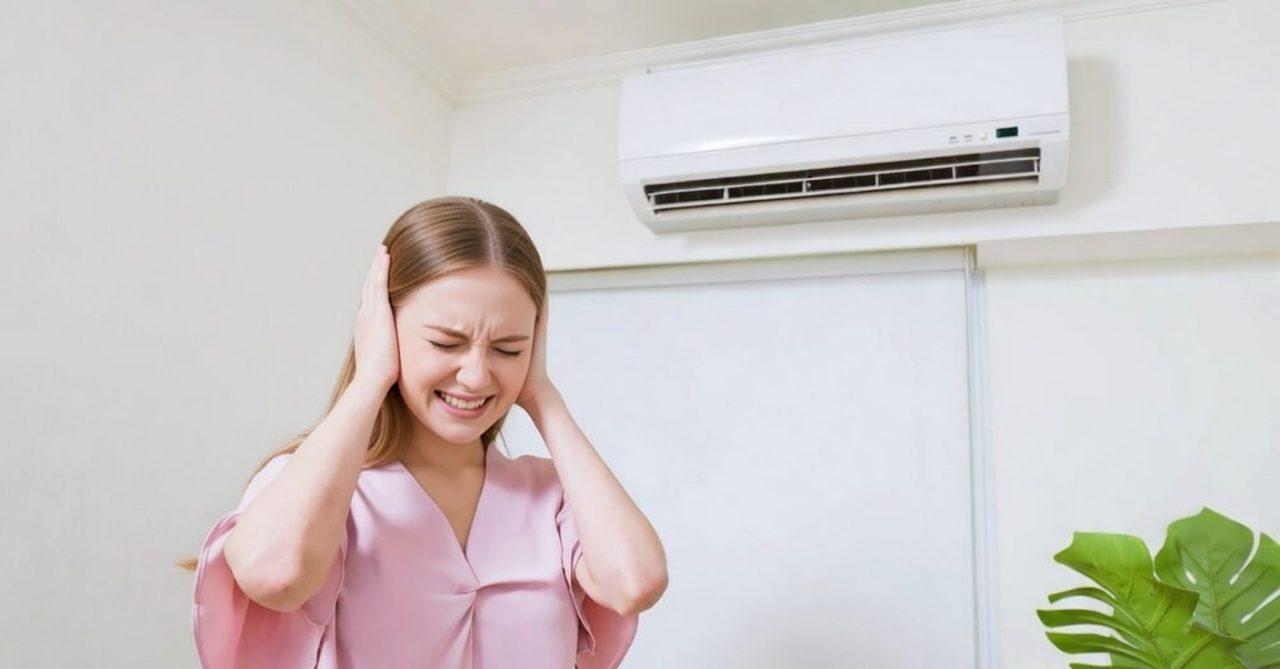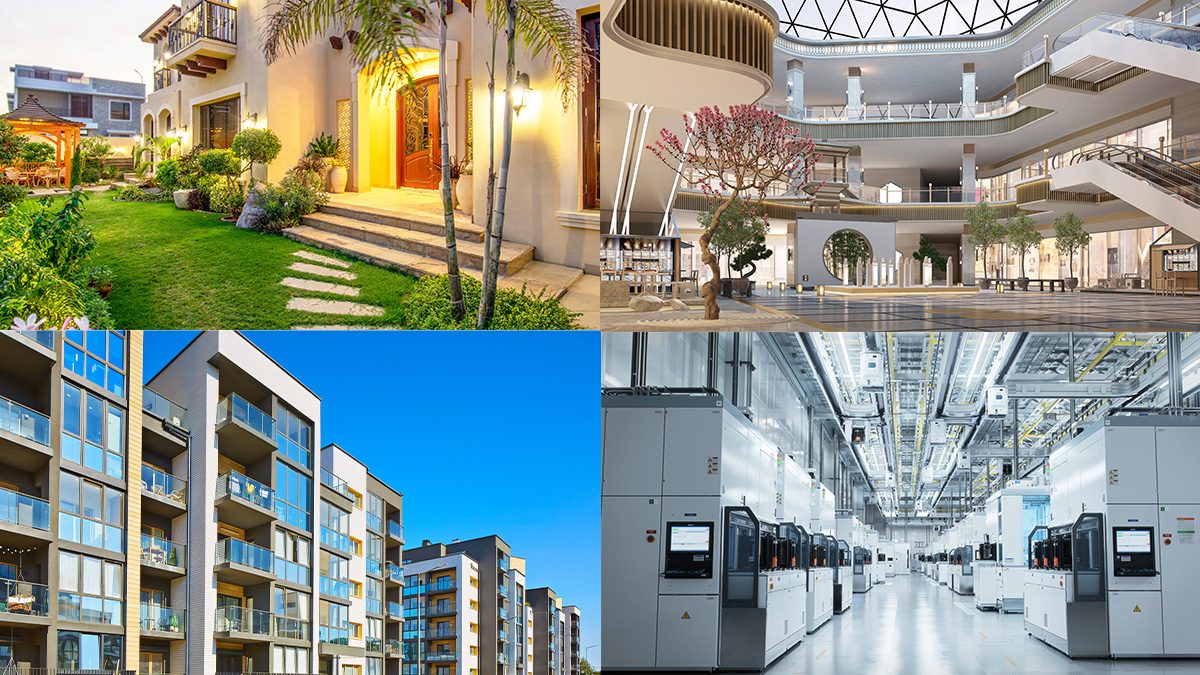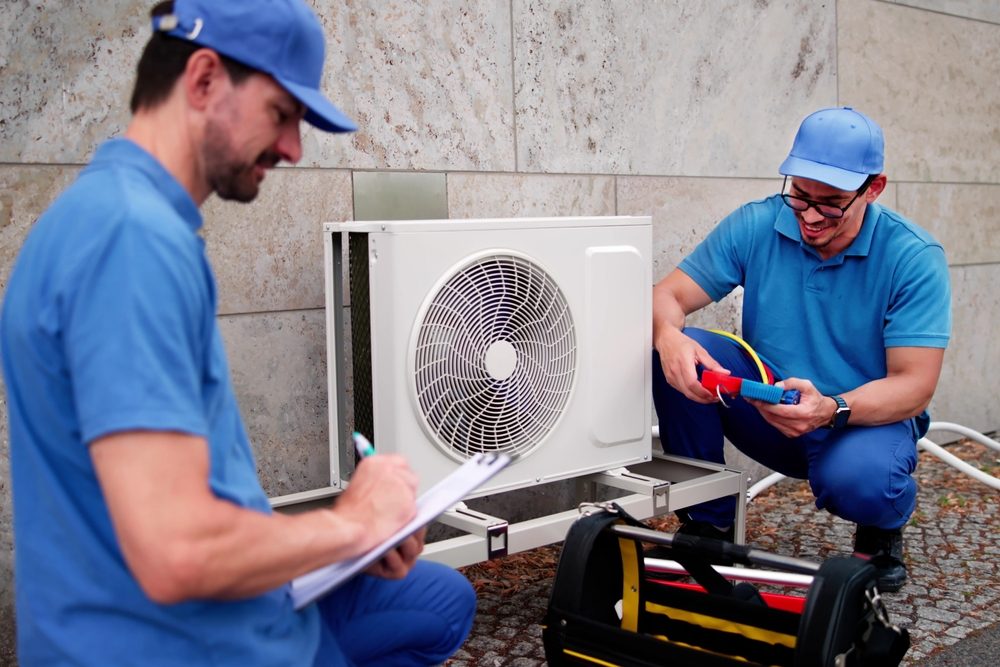
When it comes to comfort, health, and the longevity of a building, indoor air quality plays a major role. Part of this is having the correct level of humidity. Generally, a relative humidity (RH) of 40 – 60% needs to be in place for the overall health of the occupants. If this isn’t the case, then the problems associated with high humidity go beyond just human issues such as making respiratory conditions worse and aggravating skin problems, but can also cause structural damage and can lead to issues like condensation and musty odors.
So understanding how an HVAC dehumidifier unit works to improve air quality is vital for homeowners and facility managers alike, as a way of creating a healthier indoor environment. In this article, we will look at how an HVAC dehumidifier unit works, the benefits of using an HVAC dehumidifier, the ideal spaces and applications for one, and we will also cover some frequently asked questions.
At Daikin, we have over one hundred years of experience in the HVAC industry and have invented and refined many of the technologies that today people use to ensure they live and work in comfort. So let’s get started.
How an HVAC dehumidifier unit works
An HVAC dehumidifier unit works by providing a way of controlling humidity for an entire home or building. This is in contrast to portable dehumidifiers which can only work in a single room. When a dehumidifier is part of an HVAC unit, it can manage moisture levels throughout the entire space so air quality remains consistent.
The unit starts by pulling in humid air from the building and then passing it over cooled coils. As the air cools, the excess moisture condenses into water. This is then collected and drained away. Once the air is properly dehumidified, it is reheated (if necessary) before being pushed back out through the ductwork. The result: dry, clean air in every room.
There are a number of other key benefits that come from keeping the right levels of humidity, not least preventing mold, mildew, and dust mites. These can all trigger allergies and other respiratory issues so reducing them is paramount for any home owner or building manager. Dehumidifiers also reduce musty odors and stop moisture damaging furniture, electronics, or structural elements of the building itself.
Contact Daikin today to control the humidity in your home or building.
Benefits of using an HVAC dehumidifier
The benefits of using an HVAC dehumidifier are reducing mold and mildew, lower levels of allergens, better comfort as well as protection for your furniture and electronics. Let’s look at these now in more detail:
Reduced mold and mildew: When you have lower humidity, it stops harmful spores from spreading. Mold and mildew are particularly damaging to both human health and the building as a whole, so reducing these as much as possible is vital.
Lower levels of allergens: Everything you want to get rid of, like dust mites and other allergens, love damp environments. If you remove moisture then you are limiting the chance of having a problem with build-up.
Better comfort: It just feels better when the air is dry. In the summer it feels cooler and in the winter it feels warmer. So by controlling humidity you are helping keep your indoor climate stable.
Protection: Human health comes first, but there is another key benefit. Too much moisture in the air can have a negative effect on anything that’s made of wood or fabrics – as well as electronics – so by keeping the humidity low you are not as likely to see damage to your valuable items.
Ideal spaces and applications
HVAC dehumidifiers are particularly effective anywhere that has a humid climate, commercial spaces, healthcare settings, and data centers. Let’s look at these in a little more detail:
Humid climates: In places that have high levels of humidity it’s vital to keep your living or working spaces comfortable and healthy. HVAC dehumidifiers are a must in these settings.
Commercial spaces: Another must-have. Whether it’s an office, gym, or retail store, they all benefit a lot from good quality air to ensure everyone in the space is comfortable. It affects not just health but also the bottom line of businesses if they do not create a comfortable environment for shoppers or patrons.
Healthcare: Hospitals and clinics need to have very carefully controlled humidity to ensure infections are not spread and expensive, sensitive equipment is not damaged.
Data centers: A growing area. Data centers contain a lot of sensitive computer equipment and servers must be protected from moisture in order to function effectively. In many cases downtime is simply not an option, and making sure the correct HVAC dehumidifier is in place is vital.
Maintenance and efficiency tips
To ensure your HVAC dehumidifier runs efficiently you must make sure that you regularly change the filters and clean the coils and drip pans. Also ensure you have regular inspections scheduled and you are continually monitoring humidity levels.
Change filters regularly: This makes sure you prevent the build up of dust which will block the airflow.
Clean coils and drip pans: By doing this, you are helping to stop the growth of bacteria and you are keeping the condensation flowing away smoothly with no interruptions.
Routine inspections: You need to check the system regularly to identify issues as early as possible. As well as keeping your system as efficient as possible, it will also prolong the life of your system.
Monitor humidity levels: As mentioned earlier, somewhere between 40 – 60% relative humidity will give you optimal air quality, but this may differ depending on the specific setting.
FAQs about HVAC dehumidifier units
What is the difference between a portable dehumidifier and an HVAC dehumidifier unit?
Quite simply, a portable unit solely works in a specific room. But an HVAC dehumidifier is part of the building’s HVAC system so it can manage humidity throughout the entire space.
How do I know if my space needs a dehumidifier?
Look for key signs such as condensation on windows, musty odors and mold growth. Beyond things you can see, run specific humidity checks and observe the readings you are getting.
Can a dehumidifier reduce energy costs?
Yes, it can. It lowers humidity which means your HVAC system works more efficiently. In turn, this reduces how much energy you are using and therefore lowers the cost.
How often should an HVAC dehumidifier be serviced?
Ideally you should have an annual inspection carried out by a professional. This is as well as routine filter and coil maintenance.
About Daikin
Daikin began back in 1924 with just a handful of employees and today is a global leader in HVAC technology with almost 100,000 employees worldwide. We offer cutting-edge solutions for residential and commercial use, our products trusted by millions for reliable, energy-efficient heating and cooling systems. Daikin systems are top-rated, and our flagship technologies cover everything from the VRV (Variable Refrigerant Volume) system for commercial buildings, to heat pumps, many kinds of central air systems, air purifiers, dehumidifiers, as well as advanced smart thermostats.
Concerned about moisture in your building? Get in touch with Daikin today to discuss our range of HVAC dehumidifier solutions.



